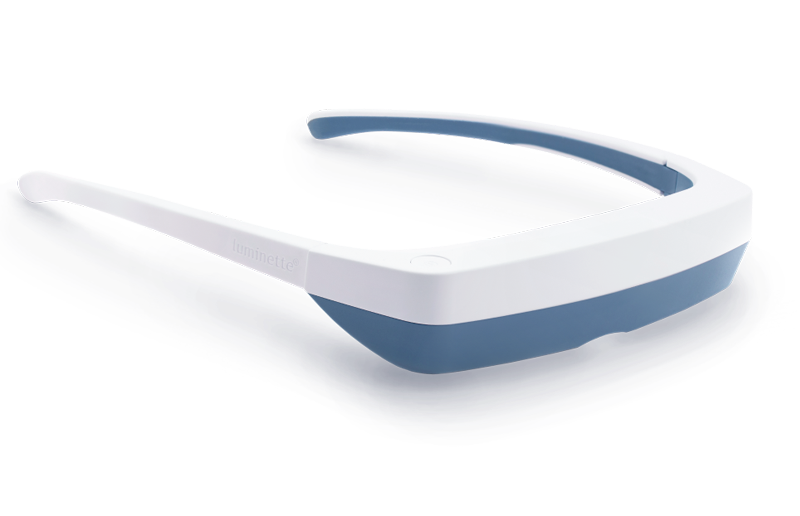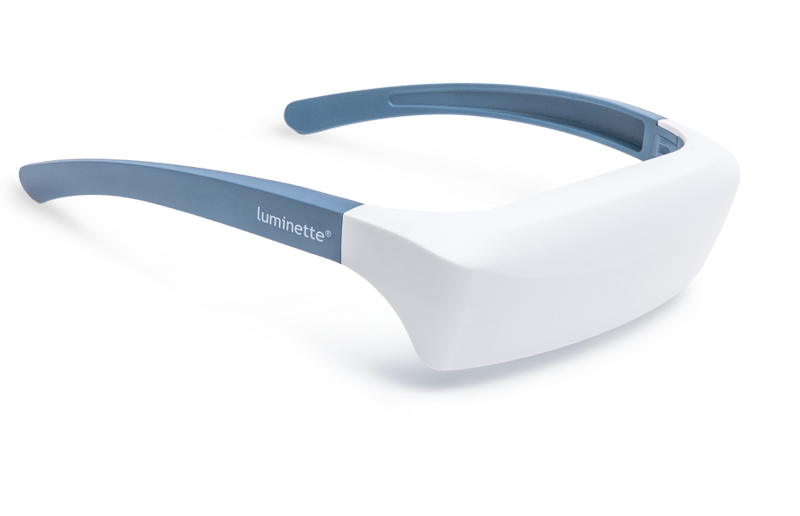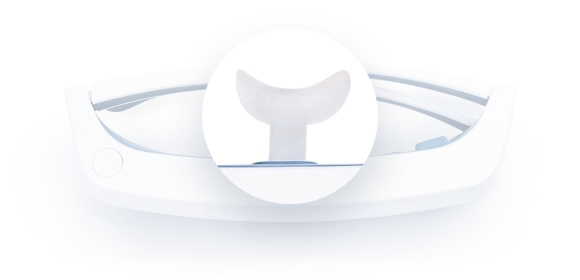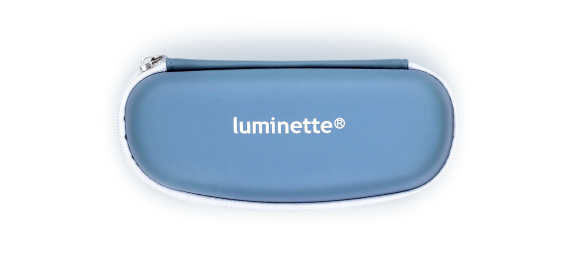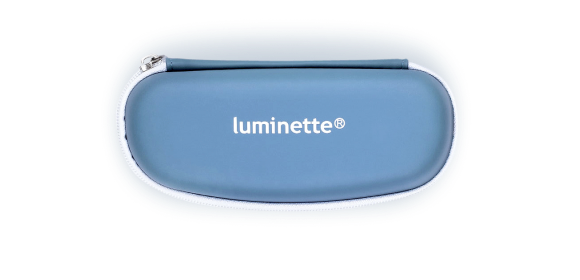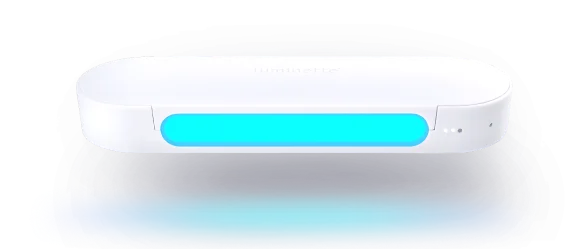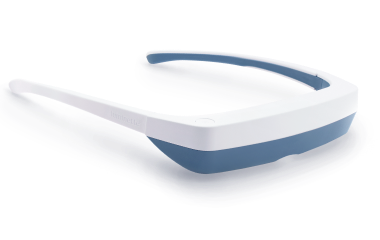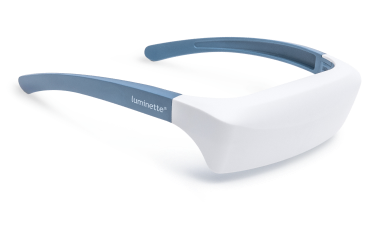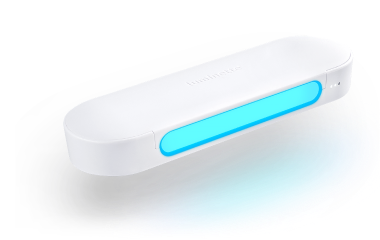Помимо регулирования сна, очки для светотерапии показали эффективность в улучшении умственной ясности и концентрации в течение дня. Воздействие яркого света утром может влиять на выработку мозгом серотонина — нейротрансмиттера, связанного с настроением, мотивацией и когнитивной производительностью. Этот естественный стимул помогает бороться с мозговым туманом и дневной вялостью, облегчая поддержание продуктивности и эмоционального равновесия.
Вы постоянно устаете днём, потому что вам трудно хорошо спать ночью?
Возможно, вы ворочаетесь часами, прежде чем наконец уснёте. Может быть, это уже влияет на ваше физическое и психическое здоровье.
Вы перепробовали всё, но, возможно, не музыку. Между музыкой и сном существует связь, которую вы можете использовать для улучшения сна.
В этой статье рассматривается, как музыка может положительно влиять на качество и продолжительность вашего сна. Мы также делимся плюсами и минусами прослушивания музыки во время сна.
Каковы преимущества прослушивания музыки во время сна?
Музыка влияет на нас по-разному. Если вы родитель, вы, возможно, замечали, как ваш ребенок засыпает под мелодию вашей прекрасно исполненной колыбельной и детских песенок.
Анекдотические и научные данные показывают, что прослушивание музыки до и во время сна приносит огромную пользу.
Музыка обладает магией улучшать качество и продолжительность сна, помогать расслабиться, быстрее засыпать и вызывать выработку «гормонов счастья».
Ниже мы рассмотрим эти потенциальные преимущества.
Музыка влияет на нас по-разному. Если вы родитель, вы, возможно, замечали, как ваш ребенок засыпает под мелодию вашей прекрасно исполненной колыбельной и детских песенок.
Анекдотические и научные данные показывают, что прослушивание музыки до и во время сна приносит огромную пользу.
Музыка обладает магией улучшать качество и продолжительность сна, помогать расслабиться, быстрее засыпать и вызывать выработку «гормонов счастья».
Музыка влияет на нас по-разному. Если вы родитель, вы, возможно, замечали, как ваш ребенок засыпает под мелодию вашей прекрасно исполненной колыбельной и детских песенок.
Анекдотические и научные данные показывают, что прослушивание музыки до и во время сна приносит огромную пользу.
Музыка обладает магией улучшать качество и продолжительность сна, помогать расслабиться, быстрее засыпать и вызывать выработку «гормонов счастья».
Более того, включение музыки в ваш ночной распорядок может способствовать долгосрочному улучшению привычек сна. Со временем ваш мозг может начать ассоциировать определенную музыку со сном, усиливая поведенческий сигнал, что пора расслабиться. Независимо от того, сталкиваетесь ли вы с периодической бессонницей или хронической, музыка может служить мягким, неинвазивным решением для поддержания здорового и спокойного сна.
В целом музыка действует как физическая и психологическая помощь, затрагивая множество аспектов сна. Речь идет не только о том, чтобы спать больше часов — важно улучшить качество и стабильность этих часов. При минимальных усилиях и отсутствии побочных эффектов добавление музыки в ваш вечерний ритуал может стать одним из самых простых изменений образа жизни с значительными преимуществами.

Улучшает качество и продолжительность сна
Прослушивание музыки до и во время сна может улучшить качество и продолжительность сна.
В исследовании, направленном на определение эффекта прослушивания музыки перед сном у 60 человек в возрасте 60–83 лет, исследователи подвергли экспериментальную группу ежедневному прослушиванию «успокаивающей музыки» в течение 45 минут перед сном на протяжении трех недель.
Результаты показали, что участники, слушавшие музыку перед сном, испытывали «значительно» лучшее качество сна, измеренное с помощью Индекса качества сна Питтсбурга (PSQI).
Участники также улучшились по всем отдельным компонентам качества сна: латентность засыпания, продолжительность сна, эффективность сна, продолжительность сна и воспринимаемое качество сна.
В другом исследовании ученые разделили 94 участника в возрасте от 19 до 28 лет на три группы.
Первая группа слушала классическую музыку в течение 45 минут перед сном, вторая группа слушала аудиокнигу в течение того же времени ежедневно. Третья группа, контрольная, не слушала аудио перед сном.
Результаты исследования показали, что классическая музыка перед сном статистически значимо улучшала субъективное качество сна и симптомы депрессии у участников.
Эти результаты не наблюдались в группе, которая слушала аудиокниги перед сном, и в контрольной группе.
Бесчисленные другие исследования пришли к тому же выводу: расслабление или прослушивание музыки для сна улучшает качество сна и может служить альтернативным, недорогим способом снижения проблем со сном, таких как бессонница.
Качество сна определено
Качество сна — это показатель, используемый для оценки того, насколько хорошо человек спал. Оно включает четыре основных компонента, а именно:
Латентность начала сна : Определяет, сколько времени у вас уходит на засыпание.
Продолжительность сна : Продолжительность сна. Взрослые должны спать от 6 до 8 часов в сутки.
Эффективность сна : Процент времени, фактически проведенного во сне, от общего времени, проведенного в постели.
Пробуждение после начала сна : Время, проведенное в бодрствующем состоянии в пределах вашего окна сна после первого засыпания.
Расслабляет ум и тело
Музыка оказывает глубокое воздействие на тело и разум человека, включая помощь в расслаблении и снижении физиологического возбуждения.
Физиологическое возбуждение — это состояние повышенной активности вегетативной нервной системы, характеризующееся высоким уровнем кортизола (гормона стресса), повышенным артериальным давлением и частотой сердечных сокращений.
Повышенное физиологическое возбуждение затрудняет переход от состояния бодрствования к сну, удлиняя время засыпания.
Вы хотите, чтобы латентность сна составляла около 10–20 минут. Как мы уже установили, латентность начала сна — одна из составляющих качества сна.
Ученые также установили двунаправленную связь между сном и стрессом. Стресс может привести к плохому сну, а плохой сон увеличивает стресс, создавая порочный круг, требующий значительных вмешательств.
Мета-анализ других исследований показал, что музыка оказывает огромное влияние на физиологическое возбуждение. Она снижает уровень кортизола, артериальное давление и частоту сердечных сокращений, ускоряя переход от бодрствования к сну.
Другое исследование показало, что успокаивающая музыка перед сном улучшала латентность начала сна и эффективность сна. У участников также наблюдалось снижение ситуативной тревожности, которая тесно связана с эффективностью сна.
Помогает заснуть быстрее
Еще одним преимуществом прослушивания музыки перед сном является то, что она помогает заснуть быстрее, что исследователи называют латентностью начала сна.
Как упоминалось ранее, цель — заснуть в течение 10–20 минут в постели. Засыпание быстрее или позже этого времени считается неоптимальным.
Например, засыпание сразу после того, как вы легли в кровать, может указывать на патологическую сонливость — состояние, связанное с ухудшением работоспособности. Прослушивание музыки перед сном может помочь уменьшить некоторые препятствия и помочь людям быстрее заснуть.
Мы уже упоминали, что успокаивающая музыка может снижать физиологическое возбуждение и ускорять переход от бодрствования к сну.
Исследователи провели метаанализ 13 исследований с участием более 1000 человек. Они обнаружили «доказательства того, что по сравнению с отсутствием лечения или стандартной терапией прослушивание музыки может уменьшить проблемы с временем засыпания».
Другое исследование показало, что прослушивание музыки перед сном значительно улучшает время засыпания.
Вызывать выброс гормонов хорошего самочувствия
предпочитаемая музыка вызывает Музыка оказывает огромное влияние на наш мозг, что привело исследователей из Стэнфорда к выводу, что «прослушивание музыки кажется способным изменять работу мозга в той же степени, что и медикаменты».
Еще один пример того, что происходит, когда вы слушаете музыку во время сна, — это то, что она может вызвать выброс определенных гормонов хорошего самочувствия, таких как дофамин и окситоцин. И дофамин, и окситоцин — это гормоны хорошего самочувствия, которые способствуют счастливым и эйфорическим ощущениям.
Исследования показывают, что «предпочитаемая музыка вызывает выброс дофамина в стриарных областях», аналогично реакции человека при еде или сексе. Дофамин — это гормон, который дарит вам чувство «удовольствия, удовлетворения и мотивации».
Исследования также показывают, что успокаивающая музыка повышает уровень окситоцина в слюне участников. Harvard Health описывает окситоцин как гормон любви из-за его способности помогать нам устанавливать связь с близкими. Более важно, он играет положительную роль в стимулировании положительных эмоций.
Окситоцин также обладает противострессовыми и улучшающими психическое здоровье свойствами, что делает его сильным союзником, когда вы пытаетесь получить качественный сон.
В конечном итоге эти гормоны хорошего самочувствия улучшают ваше настроение и помогают быстрее заснуть. Как показывают исследования, люди с расстройствами настроения обычно жалуются на проблемы со сном, такие как нерегулярный режим сна, трудности с засыпанием и слишком длительный сон.
Потенциальные риски сна в наушниках
Некроз — это отмирание клеточных тканей после длительного отсутствия кровотока. Прослушивание музыки во сне может привести к некрозу, но этот риск существует только для тех, кто спит в наушниках.
Наушники, которые плохо подходят и больше вашего слухового прохода, могут ограничивать кровоток в окружающей области. Вы, вероятно, почувствуете дискомфорт или боль при их использовании, которая может усилиться, если вы ляжете на бок.
Со временем продолжительное использование одних и тех же наушников может привести к некрозу — состоянию, при котором в областях, покрываемых наушниками, остаются чёрные и коричневые участки тканей.
Некоторые дополнительные риски использования наушников во время сна включают:
- Использование наушников сразу после душа может задерживать влагу в ухе. Застоявшаяся вода в слуховом проходе может стать благоприятной средой для размножения бактерий, что приведёт к инфекции.
Вы также можете развить будущие нарушения слуха, если слушаете музыку на очень высокой громкости во сне. Одно исследование показало, что участники, которые слушали музыку в течение трёх часов, испытывали звон в ушах.
Может вызывать накопление и уплотнение ушной серы
Хотя прослушивание музыки во сне имеет много преимуществ, использование наушников — особенно внутриканальных или накладных моделей — может представлять определённые риски для здоровья при неправильном или длительном использовании. Одной из более серьёзных проблем является потенциальная некроз , состояние, при котором ткани организма отмирают из-за недостаточного кровотока.
Этот риск возникает, когда наушники слишком тугие или неэргономичные для сна оказывают постоянное давление на кожу и окружающие ткани. Если наушники сжимают область вокруг ушей в течение длительного времени, например, при сне на боку, это может ограничить кровообращение. Со временем это может привести к дискомфорту, боли и в крайних случаях — повреждению тканей.
Некроз может проявляться в виде обесцвеченных участков кожи — обычно тёмно-коричневых или чёрных — в местах, подвергающихся длительному давлению. Хотя это редко, этот риск стоит учитывать, особенно для тех, кто спит в громоздких или плохо подходящих наушниках.
Дополнительные опасения включают:
Накопление влаги Использование наушников сразу после душа может задерживать влагу внутри слухового прохода. Тёплая и влажная среда способствует росту бактерий, увеличивая риск инфекций уха.
Повреждение слуха Прослушивание музыки на высокой громкости — даже во сне — может привести к долгосрочным проблемам со слухом, таким как тиннитус (звон в ушах). Исследования показывают, что воздействие громкого звука в течение длительного времени, даже ночью, может способствовать слуховой усталости или постоянной потере слуха.
Чтобы минимизировать эти риски, рассмотрите альтернативы, такие как внешние колонки, специальные повязки для сна с плоскими динамиками или устройства с ограничением громкости, предназначенные для ночного использования. Всегда убедитесь, что ваши наушники чистые, сухие и удобно сидят, если вы решите использовать их в постели.
Плохо ли спать в наушниках?
Спать в проводных наушниках опасно. По мере того как вы крутитесь и переворачиваетесь, провод наушников может случайно обвиться вокруг горла и задушить вас во сне.
Еще один риск при использовании проводных наушников — случайное увеличение громкости музыки до опасных уровней децибел во время сна.
Это само по себе может вызвать нарушение слуха или помешать слышать сигналы тревоги, предупреждающие о надвигающейся опасности.
Сон в проводных наушниках может представлять несколько рисков, выходящих за рамки простого дискомфорта. Одной из самых серьезных опасностей является возможность удушение . По мере того как вы меняете позу во сне — переворачиваетесь, поворачиваете голову или двигаете руками — провод наушников может обвиться вокруг шеи. Хотя это кажется маловероятным, даже частично затянутый провод может препятствовать дыханию или вызвать панику, если он запутается в глубоких стадиях сна, когда рефлексы замедлены.
Еще одна проблема — непреднамеренного изменения громкости во время сна. Не осознавая этого, спящие могут нажать на регулятор громкости или перекрутить провод так, что звук увеличится до опасным уровням децибел . Длительное воздействие громкого звука — особенно при использовании внутриканальных наушников — может привести к потеря слуха , усталость ушей , или тиннитус (звон в ушах). В отличие от бодрствования, вы не можете реагировать на дискомфорт или боль, вызванные громкой музыкой во сне, что увеличивает риск постоянного повреждения.
Кроме того, использование наушников во время сна может притупляют ваше восприятие окружающей среды , мешая вам проснуться от важных звуков, таких как дымовая сигнализация , звонок в дверь , или плачущий ребенок . В экстренных ситуациях это отсутствие осведомленности может задержать вашу реакцию и потенциально поставить вас или других под угрозу.
Если вам нравится засыпать под музыку, подкасты или белый шум, безопаснее использовать аудиорешения, дружественные ко сну , такие как беспроводные повязки с встроенными плоскими динамиками, устройства с низким уровнем громкости для создания фонового звука или динамики для подушки. Эти альтернативы разработаны с учетом комфорта и безопасности и снижают риски, обычно связанные с традиционными наушниками во время сна.
Кроме того, постоянное ночное использование проводных наушников может способствовать физическому дискомфорту и долгосрочным проблемам со здоровьем ушей. Давление от вкладышей или накладных моделей на ухо в течение длительного времени, особенно при лежании на боку, может привести к болезненности, воспалению или даже раздражению кожи. В более тяжелых случаях это постоянное давление может вызвать мелкие ссадины или пролежни на наружном ухе. Со временем этот дискомфорт может ухудшить качество вашего сна и затруднить восстановление ушей между использованиями, что подчеркивает необходимость более безопасных, эргономичных альтернатив, специально разработанных для ночного прослушивания.

Будьте внимательны к пище и напиткам, которые вы употребляете
Общие пищевые предпочтения и еда, употребляемая перед сном, влияют на качество вашего сна.
Японское исследование 3 129 женщин-работников выявило высокую корреляцию между потреблением овощей и рыбы и качеством сна. Участницы, регулярно употреблявшие овощи, спали лучше.
Напротив, участники, которые пропускали завтрак и в основном ели лапшу, кондитерские изделия и подслащенные напитки, страдали от плохого качества сна. Эти выводы оставались верными после учета других факторов риска, таких как возраст, употребление алкоголя, курение и другие.
Другое исследование показало, что участники с низким потреблением белка обычно испытывали трудности с засыпанием.
Время приема пищи — еще один фактор, влияющий на сон. Исследования показывают, что прием пищи поздно, прямо перед сном, негативно влияет на качество сна. Исследователи отметили, что эта связь сильнее у людей, которые редко едят перед сном.
Поздний прием пищи влияет на сон, потому что организм выделяет гормоны, такие как инсулин, которые могут сигнализировать мозгу оставаться бодрствующим, мешая переходу от бодрствования к сну.
В свете вышеуказанных выводов, вот несколько советов, связанных с питанием, которые помогут вам лучше спать:
Избегайте продуктов с высоким содержанием жиров, белков и острых блюд перед сном
Организму требуется много часов, чтобы переварить блюда с высоким содержанием жиров, такие как стейк. A Исследование 2010 года с участием 459 женщин установлено, что пища с высоким содержанием жиров перед сном сильно связана с сокращением времени сна.
Избегайте алкоголя перед сном и регулярного употребления
Хотя алкоголь может помочь быстрее заснуть, он влияет на поздние и восстановительные стадии сна, вызывая бодрствование ночью. Просыпание ночью и трудности с возвращением ко сну приводят к плохому качеству сна.
Ограничьте потребление кофеина утром и в первой половине дня
Кофеин может оставаться в крови 6-8 часов, что делает его эффект заметным даже после отхода ко сну при позднем употреблении. A исследование влияния кофеина ноль, три и шесть часов до сна показали, что потребление кофеина за шесть часов до сна вызывает нарушение сна.
Избегайте таких блюд, как пепперони, хот-доги, маринованные огурцы, бекон и обработанные сыры
Эти продукты содержат тирамин — аминокислоту, которая может вызвать выброс норэпинефрина, гормона, отвечающего за реакции «бей или беги».
Выключайте экраны телефонов перед сном, чтобы избежать воздействия синего света
Источник: Журнал семейной медицины и первичной помощи
Исследования показали, что использование телефона во время или перед сном значительно влияет на качество сна.
Исследование 2019 года показало, что чем дольше человек использует смартфон перед сном, тем выше риск плохого качества сна.
Риск плохого качества сна у тех, кто использует смартфон перед сном от 16 до 30 минут, увеличивается в 2 раза. Этот риск возрастает до 7,4 раза для тех, кто пользуется смартфоном более часа.
Поскольку современный образ жизни всё больше отдаляет нас от естественного света — из-за долгого пребывания в помещениях, воздействия экранов и нерегулярного режима сна — очки для светотерапии предлагают практичный способ вернуть эти важные экологические сигналы. В отличие от традиционных ламп для светотерапии, очки обеспечивают мобильность, позволяя заниматься утренними делами — читать, готовить кофе или даже добираться на работу — одновременно получая терапевтическое световое воздействие.
Кроме того, регулярное использование очков для светотерапии может помочь снизить последствия нарушения циркадных ритмов, которые часто проявляются усталостью, плохим настроением, снижением концентрации или трудностями с засыпанием ночью. Это делает их особенно полезными для сменных работников, частых путешественников, испытывающих джетлаг, или людей, страдающих от задержки фазы сна.
Очки для светотерапии — это не просто альтернатива естественному солнечному свету, это научно обоснованный метод перенастройки естественного биологического ритма организма в всё более искусственной среде. В рамках здорового образа жизни, включающего гигиену сна, физическую активность и правильное питание, они могут поддерживать общую продолжительность жизни и эмоциональную устойчивость.

Смартфоны излучают синий свет, который нарушает ваш циркадный ритм, регулирующий время физиологических процессов, таких как сон. В определённые ночные интервалы человеческий организм должен выделять мелатонин, чтобы сигнализировать телу о времени сна.
Воздействие смартфонов, ноутбуков, телевизоров и комнатного освещения задерживает начало выделения мелатонина, препятствуя переходу от бодрствования ко сну. Согласно этому исследованию, 99% участников, подвергшихся воздействию комнатного света перед сном, испытали более позднее начало выделения мелатонина.
Рекомендации:
- Прекратите использование всех гаджетов как минимум за 30 минут до сна и избегайте использования смартфона в постели.
- Держите комнату темной и комфортной.
Используйте очки для светотерапии
В этом примере сигналы организма к сну и пробуждению будут смещены на целых два часа, что означает, что начало сна изменится с 21:00 на 23:00.
Поэтому поддержание вашего циркадного ритма особенно важно для засыпания, так как он определяет, когда в вашем организме выделяется мелатонин, сигнализирующий о времени сна.
Но спросите себя, как часто вы выходите на улицу и видите яркий свет. С недавним ростом удаленной работы всё больше людей проводят меньше времени на улице. Вот где на помощь приходит светотерапия.
Используйте очки для светотерапии Luminette 3
Luminette 3 светотерапевтические очки — это инновационные очки, разработанные для того, чтобы вы могли наслаждаться сеансом светотерапии, занимаясь своими обычными делами. В отличие от традиционных терапевтических ламп, очки Luminette 3 оснащены искусственным источником света, который направляет безопасный световой поток в ваши глаза, не вызывая ослепляющего эффекта и не мешая четкому зрению.
Чтобы использовать их, просто наденьте очки и нажмите кнопку для активации света — ваша фототерапия начинается. Эти очки удобны в использовании и совместимы с теми, кто носит очки с рецептом или контактные линзы, обеспечивая отсутствие помех для зрения и комфорта.
С удобством Luminette 3 больше не нужно сидеть рядом с неподвижной лампой для светотерапии по 30 минут каждый день. Свобода передвижения означает, что вы можете готовить завтрак, погрузиться в увлекательную книгу, смотреть любимые телешоу, работать за компьютером или даже заниматься легкими упражнениями, получая при этом терапевтическое световое воздействие. Будь вы дома или в пути, Luminette 3 предлагает гибкое и эффективное решение для включения светотерапии в вашу повседневную жизнь.
Luminette Light Therapy Glass — это инновационный продукт высшего класса в своей категории, разработанный на основе более чем четырех лет исследований в Университете Льежа.
Он идеально подходит для тех, кто получает мало или совсем не получает солнечного света в течение дня из-за возраста или ограниченной подвижности, вызванной болезнью, графика работы, характера работы, а также для всех, кто хочет лучше спать, уменьшить усталость и повысить продуктивность и креативность.
Преимущество Luminette 3 в том, что вы можете использовать его где угодно и во время большинства повседневных дел. Вы надеваете его как обычные очки всего на 20-45 минут в день, в зависимости от выбранной интенсивности света.
Некоторые технические характеристики Luminette 3 включают:
- Излучает обогащенный синим белый свет
- Излучает свет с длиной волны 468 нм, наиболее эффективной для имитации положительного эффекта солнца
- Сертифицирован как безопасный и имеет классификацию CE для безопасных устройств для глаз
- Не содержит инфракрасных и ультрафиолетовых лучей
Вы можете использовать его во время завтрака, чистки зубов, чтения книги и выполнения легких упражнений.
Luminette 3 безопасен и не нагружает организм, и вы можете начать ощущать его преимущества уже после 4-6 дней регулярного использования.
Дополнительные советы, которые помогут улучшить ваш сон
Циркадный ритм, внутренние часы и хронометр организма, выполняет множество функций, включая передачу сигналов телу о времени сна и пробуждения.
Вам необходимо постоянное воздействие естественного света, особенно утром, чтобы сбросить биологические часы и сохранить их точность в 24-часовом цикле.
Когда ваше тело не получает сигналов от естественного света, оно работает на автопилоте. Со временем 24-часовой цикл удлиняется, как показано в этом исследовании, когда он увеличился до 26 часов.
Со временем хроническое несоответствие между вашим внутренним биологическим часом и ежедневным расписанием может увеличить риск более серьезных проблем со здоровьем, таких как метаболические расстройства, депрессия и ослабление иммунной функции. Поэтому поддержание регулярного воздействия яркого, естественного или имитированного света — особенно в ранние часы дня — важно для сохранения не только здоровья сна, но и общего физиологического баланса.
Избегайте длительных дневных дрем. Короткие энергичные дремы продолжительностью 30-45 минут полезны.
Старайтесь ложиться спать и просыпаться в одно и то же время каждый день. Убедитесь, что ожидаемая продолжительность сна составляет 6-8 часов. Это поможет выработать постоянную привычку.
Держите вашу спальню чистой, расслабляющей и при правильной температуре.
Вечерний ритуал может сигнализировать вашему мозгу, что пора спать. К занятиям, которые можно добавить в рутину, относятся принятие душа, медитация и, как уже упоминалось, прослушивание спокойной музыки за 30-45 минут до запланированного времени сна.
Поменяйте матрас, постельное бельё и подушки для более комфортного сна.
Вывод: улучшайте качество сна с помощью силы вечерних мелодий
Будь то успокаивающие классические мелодии или ваши любимые композиции, музыка может расслабить ваш ум, снизить стресс и облегчить плавный переход ко сну.
Используя преимущества прослушивания музыки до и во время сна, вы можете создать благоприятную среду для восстановительного отдыха.
Советы, такие как избегание алкоголя и кофеина перед сном и использование устройств для светотерапии, таких как Luminette 3, помогут вам стать качественным спящим.
Сочетание музыки с другими здоровыми практиками сна, которые мы описали, может оптимизировать ваш опыт сна и помочь вам чувствовать себя обновлённым каждое утро.
Включение музыки в ваш вечерний ритуал может стать простым, но мощным инструментом для улучшения качества сна и общего самочувствия.
Будь то успокаивающие классические мелодии или ваши любимые композиции, музыка может расслабить ваш ум, снизить стресс и облегчить плавный переход ко сну.
Используя преимущества прослушивания музыки до и во время сна, вы можете создать благоприятную среду для восстановительного отдыха.
Советы, такие как избегание алкоголя и кофеина перед сном и использование устройств для светотерапии, таких как Luminette 3, помогут вам стать качественным спящим.
Сочетание музыки с другими здоровыми практиками сна, которые мы описали, может оптимизировать ваш опыт сна и помочь вам чувствовать себя обновлённым каждое утро.
Хотите лучше спать и иметь огромный запас энергии в течение дня? Приобретите очки для светотерапии Luminette, чтобы стимулировать выработку необходимых гормонов, которые нужны вашему организму для хорошего ночного отдыха.
Часто задаваемые вопросы
Безопасно ли спать с музыкой, играющей всю ночь?
Да, для большинства людей тихое проигрывание музыки на протяжении всей ночи безопасно и способствует расслаблению. Однако лучше использовать внешние колонки или аудиоустройства, подходящие для сна, а не наушники, чтобы избежать физического дискомфорта или рисков для безопасности.
Может ли прослушивание музыки улучшить качество сна?
Безусловно. Музыка с медленным темпом и успокаивающими тонами может помочь снизить тревожность, уменьшить частоту сердечных сокращений и облегчить переход в глубокие стадии сна, что может улучшить общее качество и продолжительность сна.
Есть ли риски при сне в наушниках?
Да. Сон с проводными или плотно прилегающими наушниками может привести к таким проблемам, как дискомфорт в ушах, раздражение кожи, повреждение слуха из-за длительного громкого звука или даже удушение в редких случаях. Более безопасные альтернативы — это подушечные колонки или повязки для сна с динамиками.
Может ли музыка во время сна влиять на сновидения?
Да, некоторые исследования и анекдотические свидетельства показывают, что фоновая музыка может влиять на содержание снов и эмоциональный тон. Музыка может формировать более спокойный или более яркий опыт сновидений в зависимости от жанра и эмоционального настроя.
Может ли музыка помочь при бессоннице?
Музыка часто используется как естественное средство борьбы с бессонницей. Она помогает успокоить нервную систему и снизить уровень стресса — два основных фактора, способствующих бессоннице. Интеграция музыки с другими практиками, такими как светотерапия, может усилить её эффект.
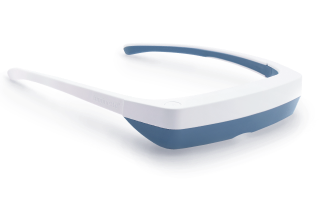
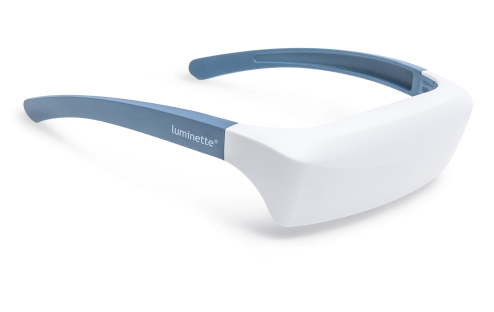
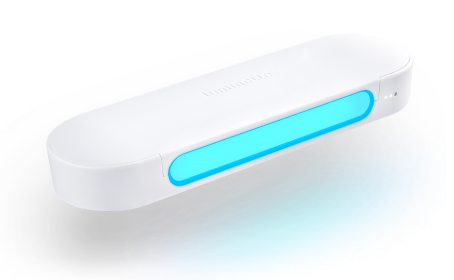
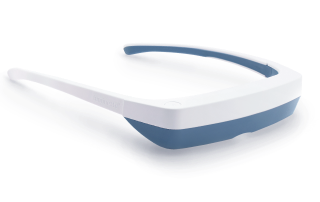
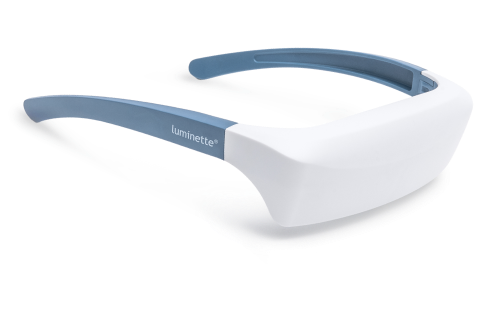
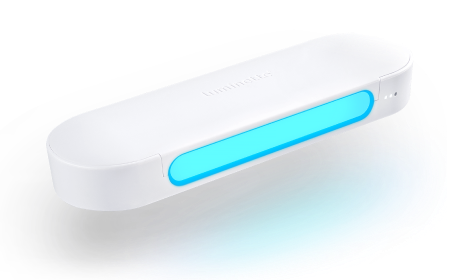
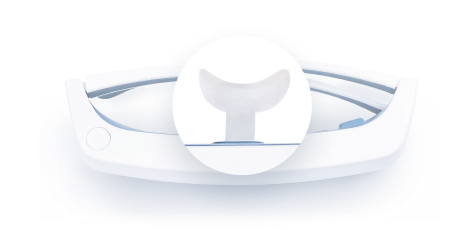
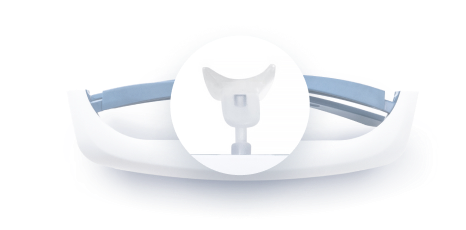
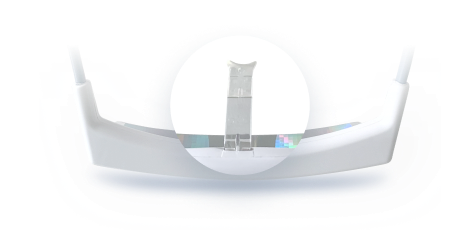
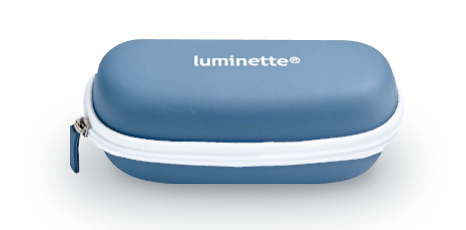
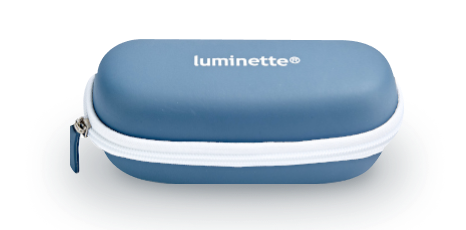
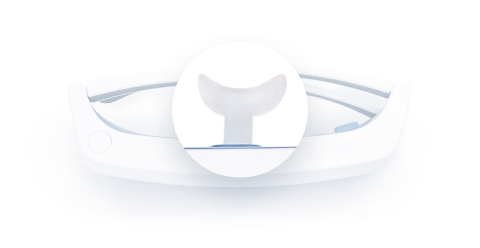
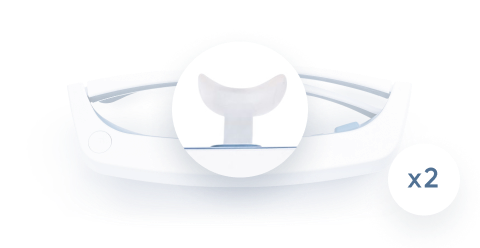
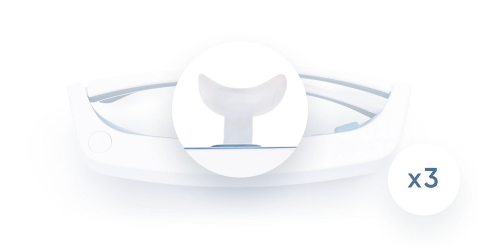
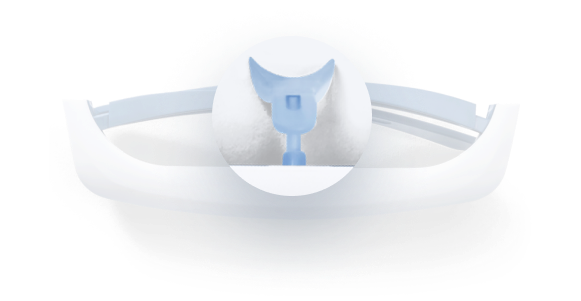
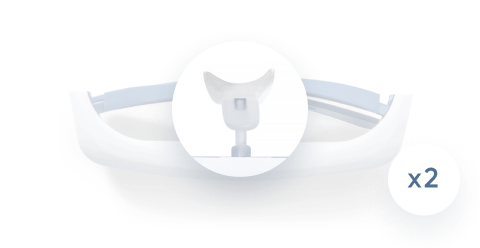
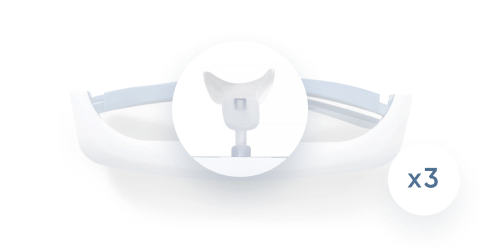
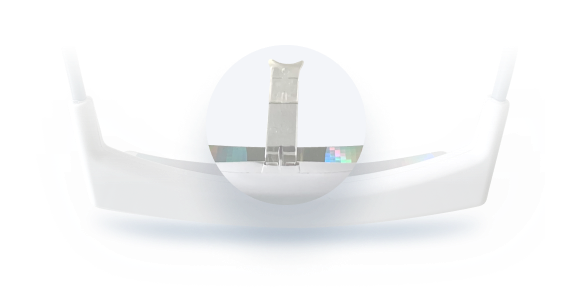
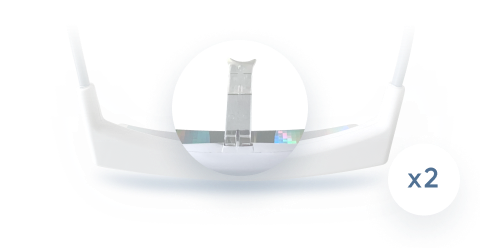
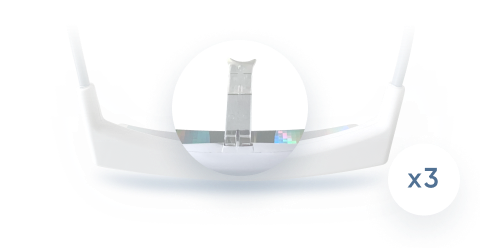
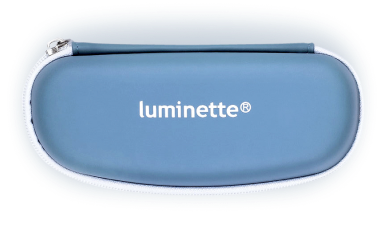
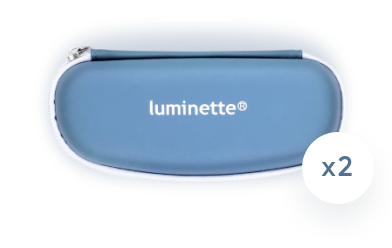
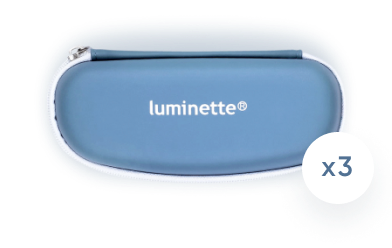
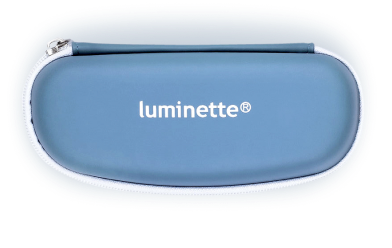
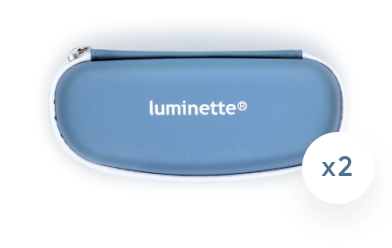
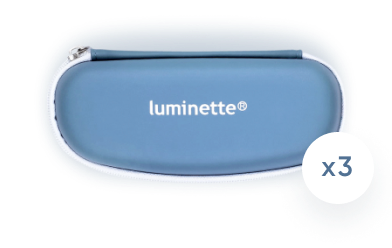





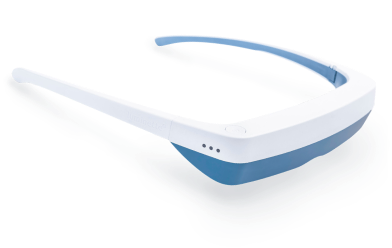
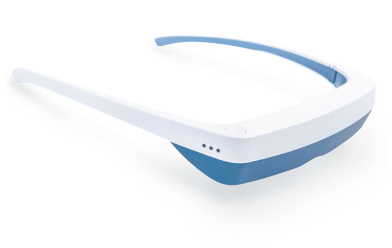
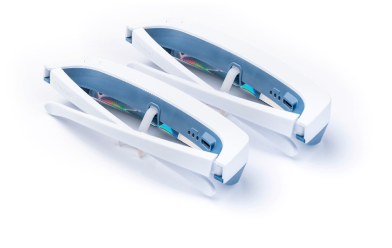
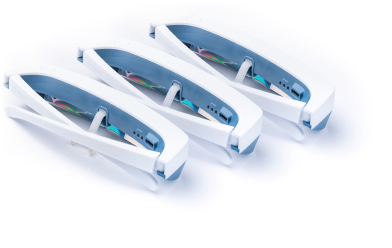
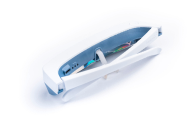
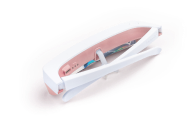
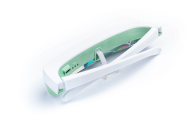
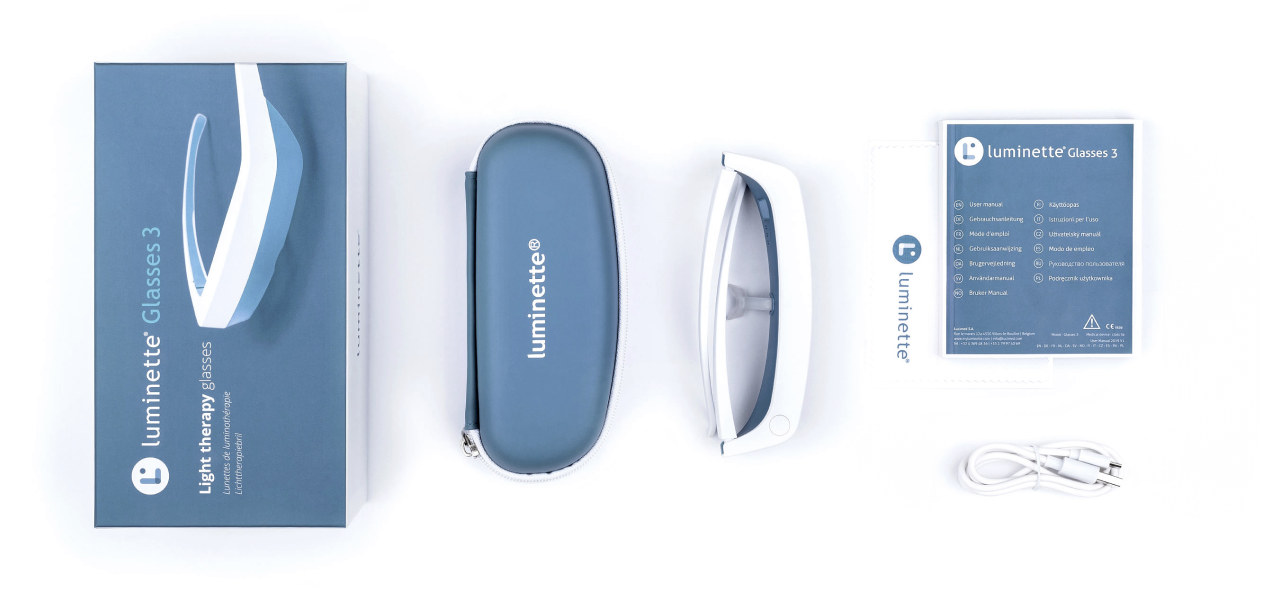
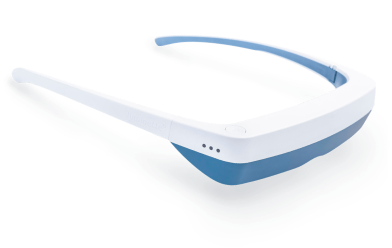
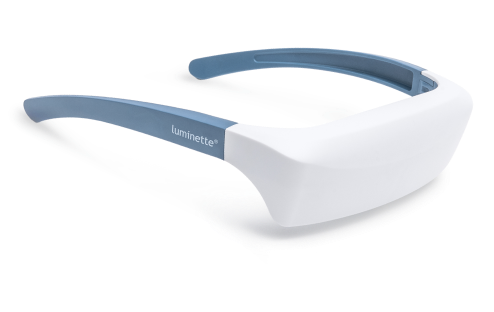
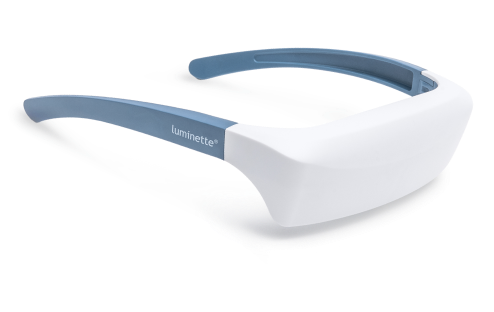
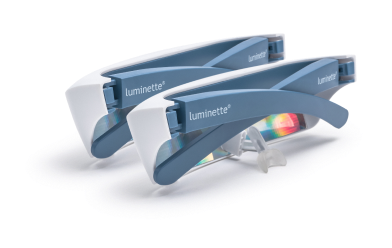

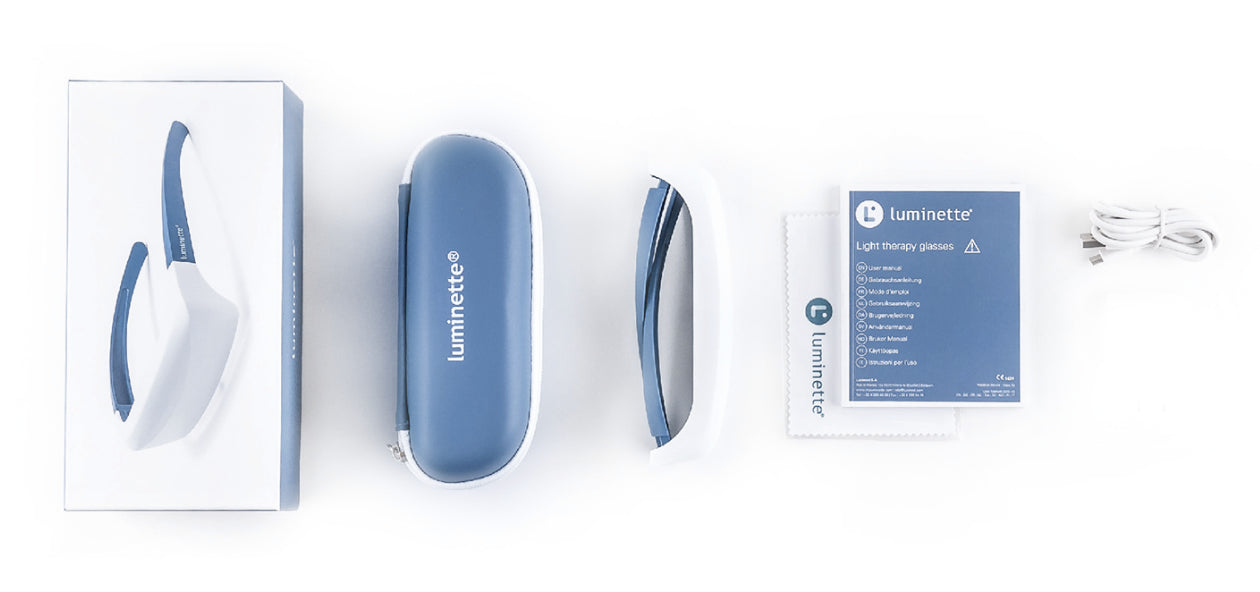
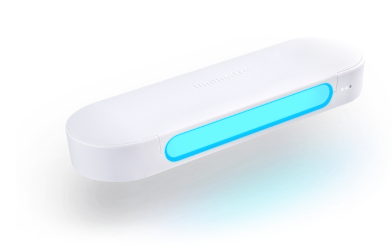
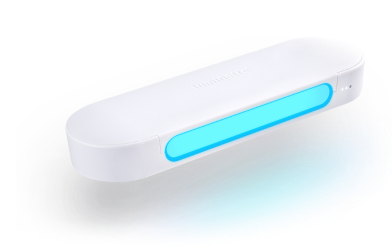
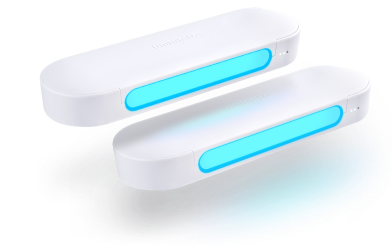
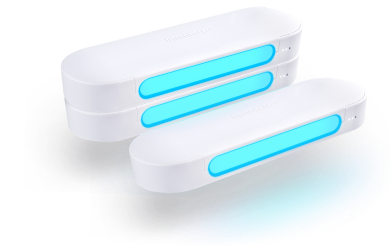
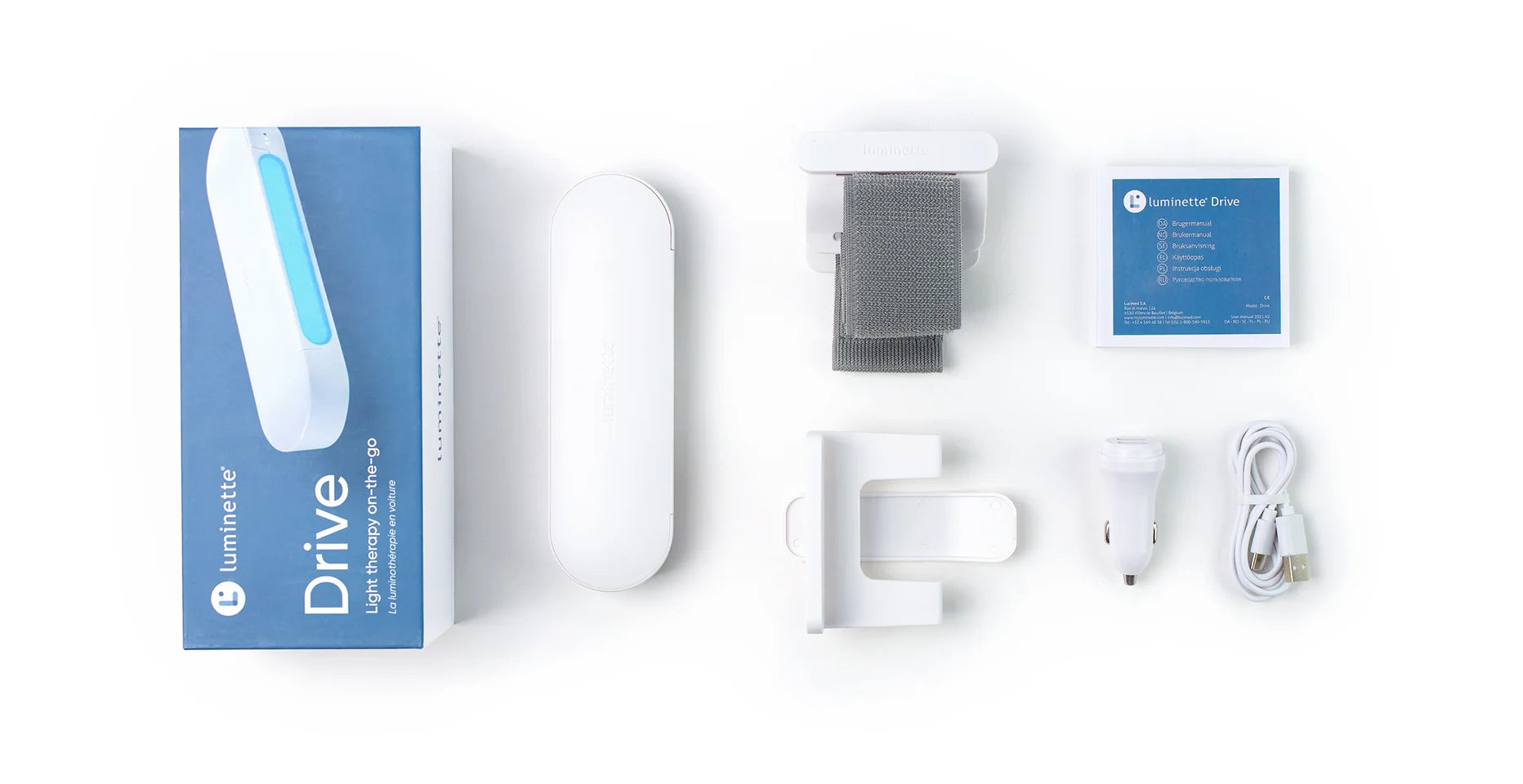
 Обратите внимание
Обратите внимание



